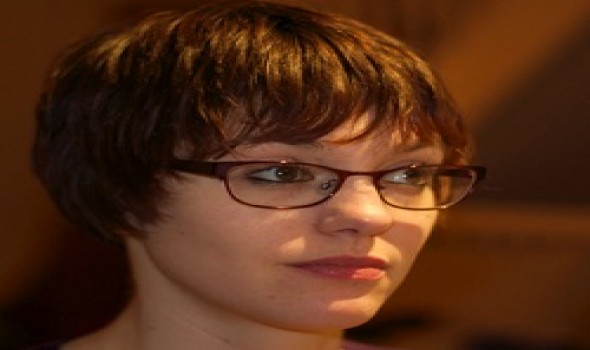Judith Vonberg: Yashika Bageerathi and the immigration debate
Judith Vonberg: Yashika Bageerathi and the immigration debate

Two weeks ago, the name Yashika Bageerathi was known only to her family and friends. Now that name is synonymous with a flawed asylum process. Fleeing a violent family member, the Bageerathi family arrived in the UK from Mauritius in 2012. They claimed asylum together but Yashika, who recently turned 18, is now considered an adult and her case dealt with separately from her mother, sister and brother. Her asylum claim was rejected and her deportation ordered. Yet two attempts to deport the A Level student failed. Although official statements from British Airways and Air Mauritius suggest otherwise, it seems that pressure from the public forced these two airlines to refuse to fly Yashika. Zoe Thompson, Deputy Principal at the school where Yashika was due to sit her A Levels in a few weeks time, began the campaign against her deportation. More than 170,000 people have signed her petition on change.org calling for the decision to be reconsidered. Every major news outlet jumped on the story, twitter was quickly abuzz and websites from Cosmopolitan to Open Democracy have published articles. The legal intricacies of the case have not been made public so it may be true that, under current UK asylum law, Yashika and her family’s claim should be rejected. Yet the questions remain: why has the process taken so long, allowing Yashika to build a life, become a valued member of her community and reach her A Levels with straight A predictions, before having this new life taken away? And why is a vulnerable teenager being sent alone to a country where she felt so threatened that she travelled over 6,000 miles with her family to seek refuge? *** A different story now. Veronica van Heyningen is a British geneticist with a degree from Cambridge, a PhD from Oxford and an honorary professorship from Edinburgh. Her research into genetics has led to several breakthroughs in our understanding of the human eye and the diseases that affect it. She is a world leader in her field. Veronica came to England with her family at the age of 11. Her parents were Hungarian Jews who had been sent to concentration camps by the Nazis, but survived. The arrival of the Soviets in Hungary brought further persecution and the family escaped to England in 1958. Like Yashika, she very quickly showed great promise at school. Her father encouraged her to take a scientific route not least because of their Jewish identity. As Veronica explained on BBC Radio 4’s programme “The Life Scientific” on 1st April, her father continued to fear, even to expect, further persecution. If they had to flee once more, he reasoned, “we could take our knowledge with us and build a new life”. Such fears are impossible for most of us to imagine. At her family’s interview for British citizenship she blurted out that she wanted to go to Cambridge University. Several years later, she did just that, and her astounding career began. *** People and organisations who argue the positive side of immigration often use stories of individuals such as Yashika and Veronica. Veronica has inarguably achieved great things for both this country and the wider world, things she possibly couldn’t have achieved if she had remained in communist Hungary. Yashika, obviously a very bright student, has the potential to do the same. But what about all those migrants who don’t excel academically or lack passionate people to fight their cause, like Yashika’s teachers? Not every one will go to a great university or do ground-breaking research, but every one has the potential to contribute positively. He or she may become a childminder, introducing a child to a book that inspires a love of reading, or a nurse, brightening the final days of an elderly person’s life. This is not sentimental nonsense designed to warm your heart to the migrant cause, but it is rooted in the real daily experience of real British citizens. Politicians such as Nigel Farage claim to speak on behalf of “the British people”. But how many of those people have positive concrete experiences with migrants to this country? Probably most. Whether it was a friendly and efficient electrician or a bus driver with a smile for every passenger. Even regardless of this potential, every immigrant to this country deserves the right to a just assessment of his or her case. Yet there may be many hundreds, even thousands of migrants in this country whose cases are being dealt with unjustly. Their names are unknown. Their detention is unopposed. Their deportations go unchallenged. Petitions on change.org can be incredibly powerful, but let’s not forget those who do not have the means to gather tens of thousands of signatures just to be treated according to UK law. There have been twenty deaths in UK detention centres in recent years, including a 40-year-old woman, Christine Case at Yarl’s Wood just last Sunday and Alois Dvorzac last year, an 84-year-old Canadian man with Alzheimer’s. Where were the campaigns for their just treatment? There were none, as they had no one to fight for them. The sad fact is of course that we should not have to campaign for the fair treatment of human beings in this country. That should be a given. Campaigns for individuals are vital and can raise awareness of the flaws, confusions and corruption in the UK immigration system. But we must not get so caught up in the battles that we forget the war. Only through wholesale reform of the system can justice for every immigrant to this country, from Yashika to Christine and Alois, be achieved. Judith Vonberg is a PhD student studying the mutual perceptions of Brits and Germans after the Second World War. She has a strong interest in issues relating to migration and nationality. She has been a volunteer for Migrant Voice since January 2013.


